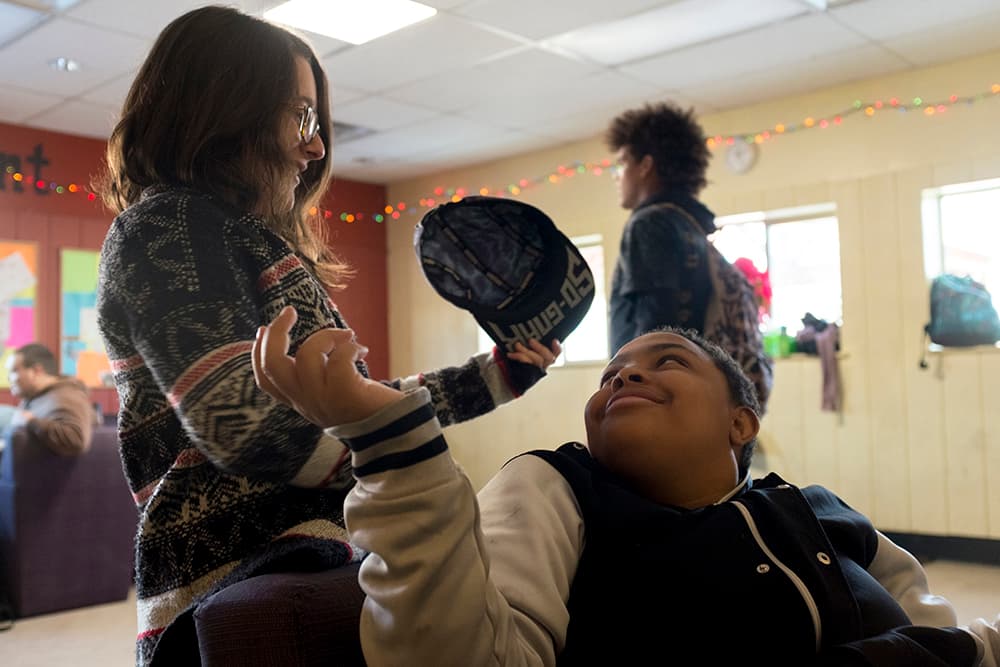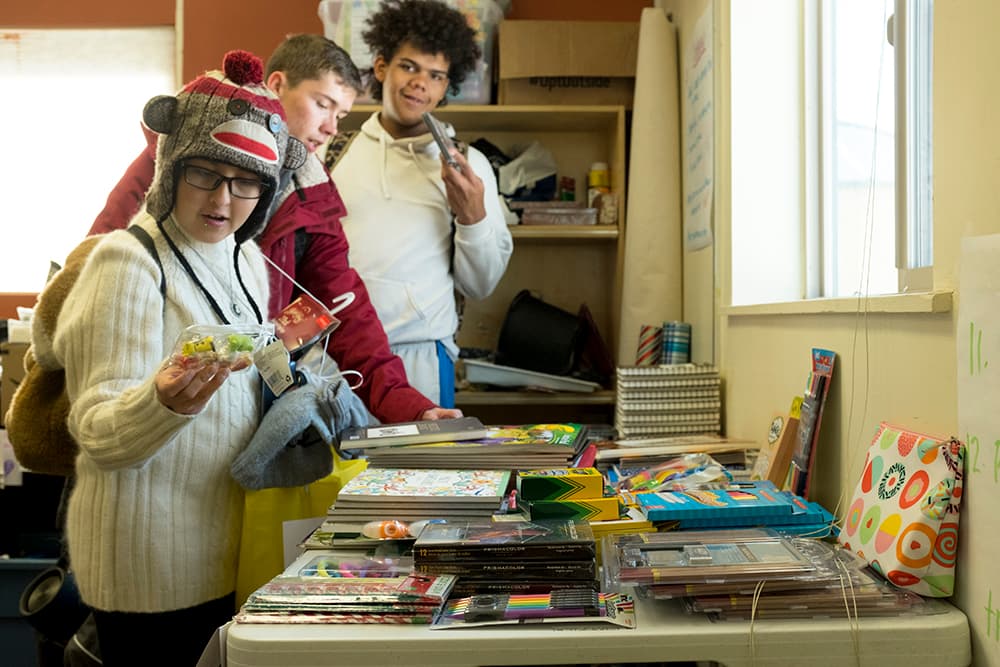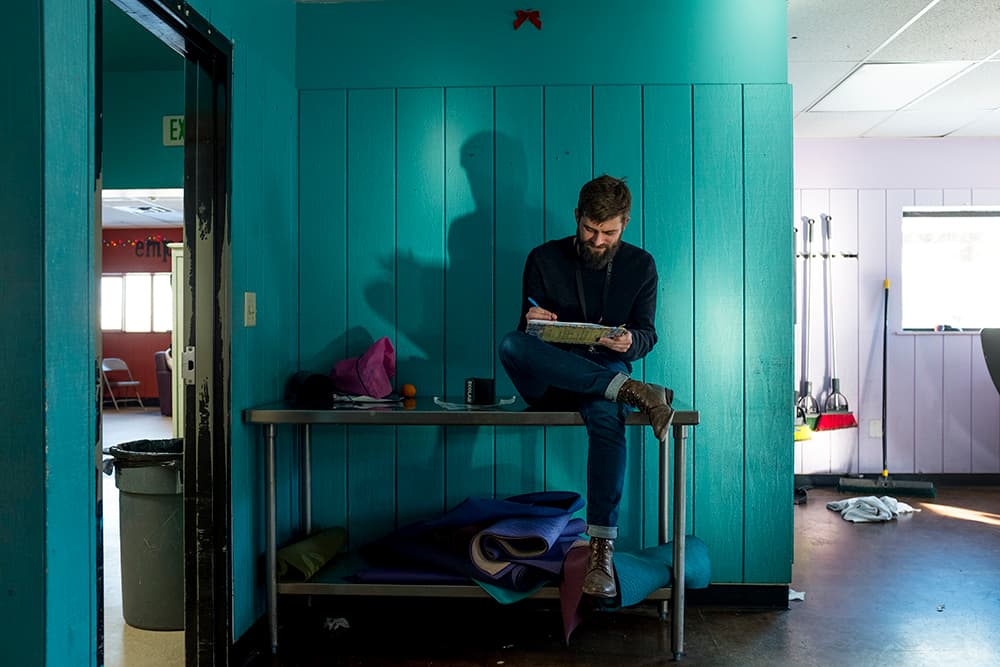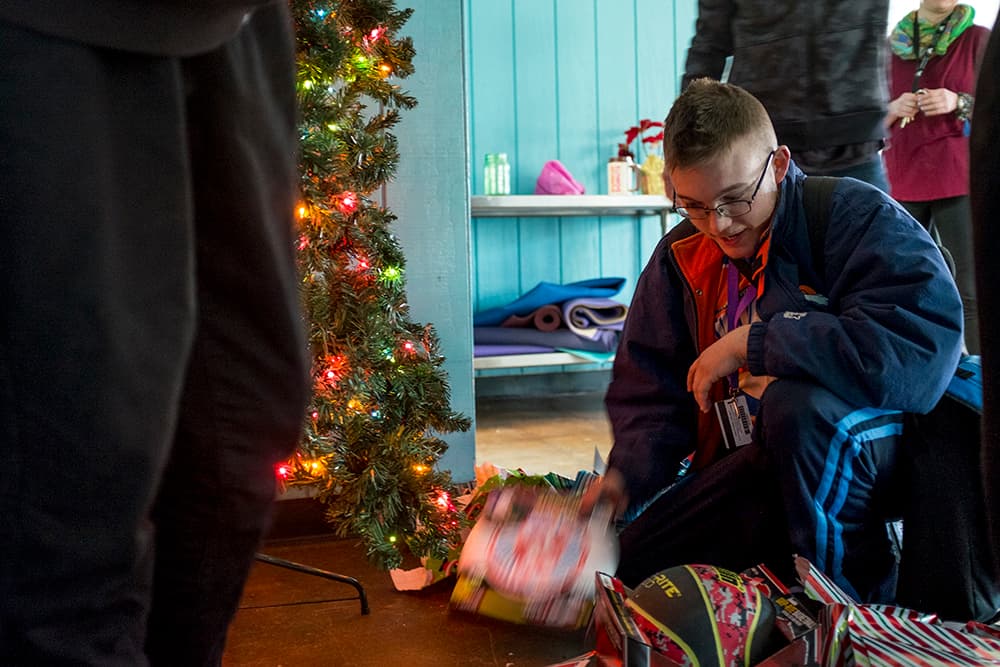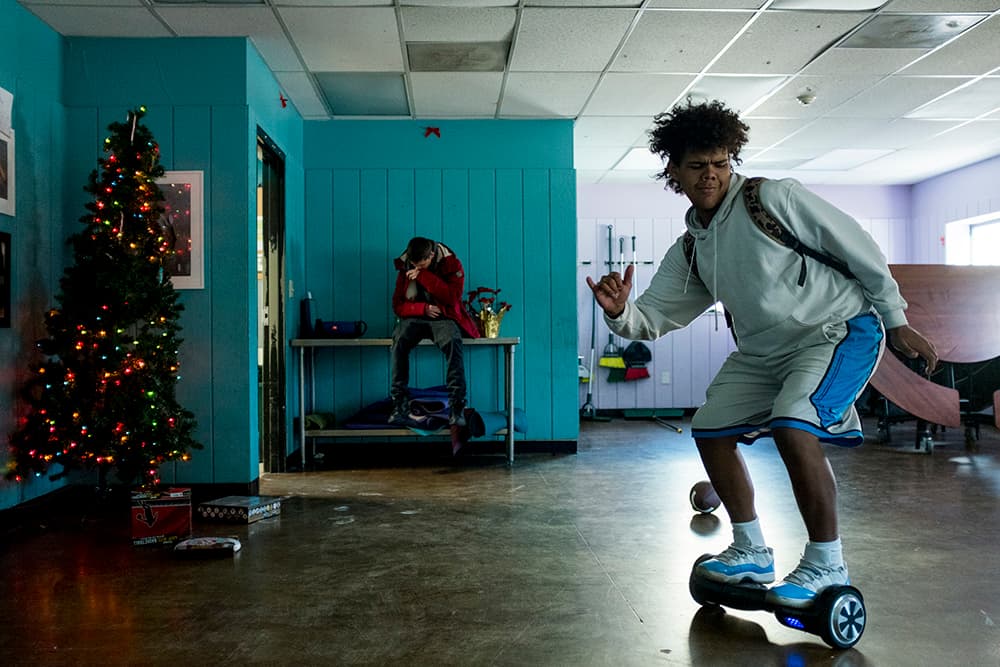
The residents of Urban Peak start Christmas morning with heaping plates of eggs, bacon and fruit topped with whipped cream.
"It’s just one of those small things that you take for granted," says Ruth, who's 20, "having a breakfast you didn't have to make yourself."
Urban Peak is one of the few shelters in Denver that serves young homeless people exclusively. At the holidays, residents are encouraged to spend time with friends or family members if they have somewhere they can go, but many don't want to go home -- or can't.
Shelter staff and volunteers do what they can to recreate important holiday experiences -- that sensation of being so full you just want to close your eyes on the couch and pass out, the thrill of gifts -- but the holidays also come with mixed feelings. Despite their young age, many of the residents here know what it's like to sleep outside. Holiday joy isn't always straightforward.
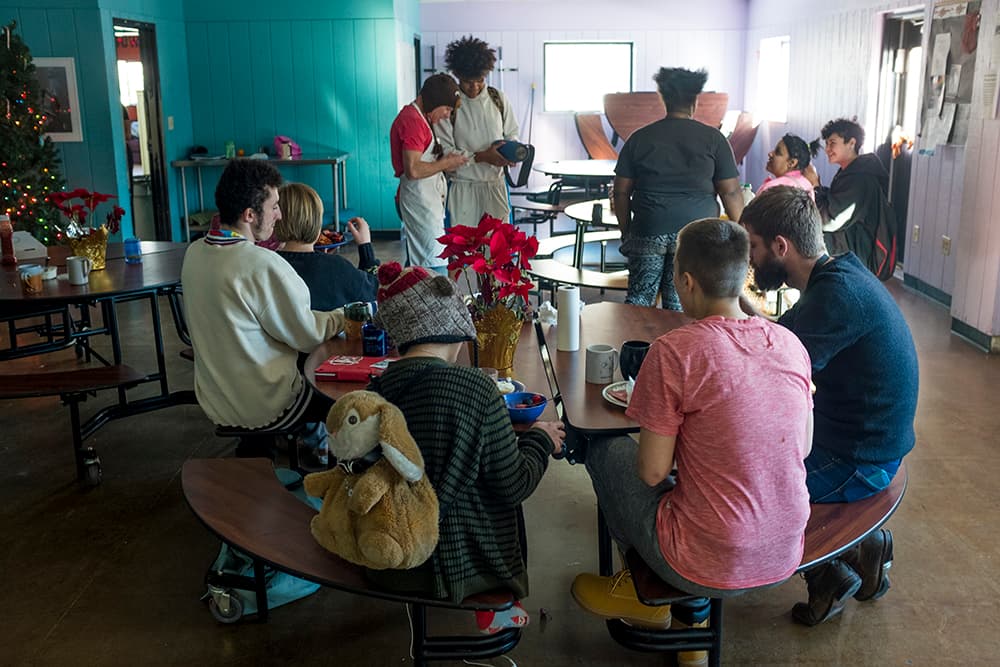
"People give you stuff because you're homeless," Ruth says. "It's terrible, but also it feels like people care in a weird way."
For Ruth, in particular, the whole occasion is laced with difficult memories. Her parents announced their divorce right after Christmas one year, then tainted the holiday as they competed to win her affections with gifts. She eventually decided to leave home.
"I used to think that nobody cared about me," she says.
While she says being homeless or living at Urban Peak is not a time to be content, she says she's learned a lot from the time on her own. "I feel more me than I ever have at Christmas."
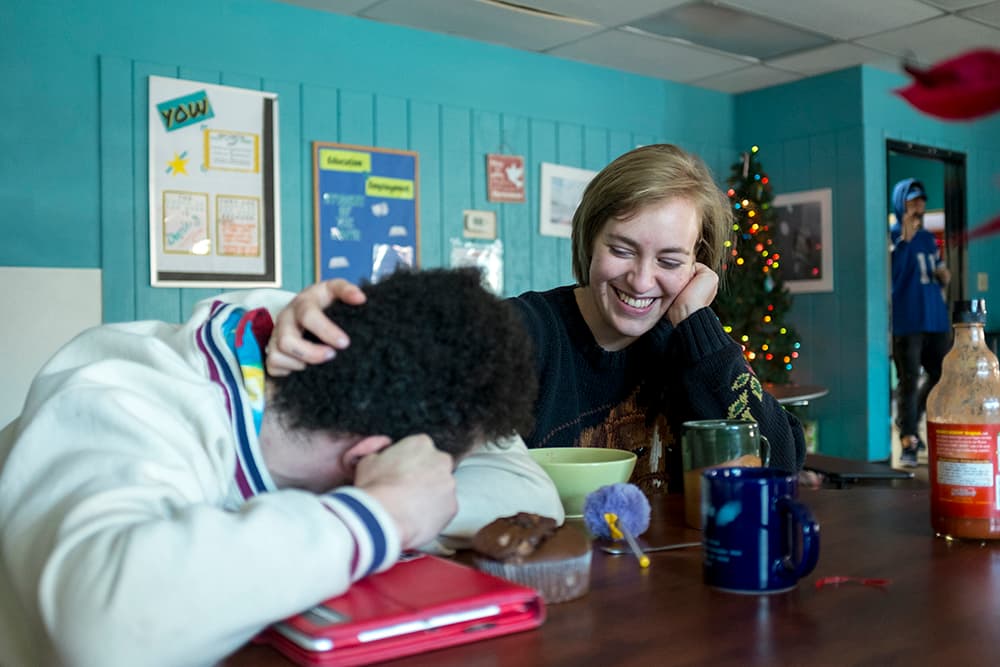
Urban Peak's program consists of a drop-in day shelter and an overnight shelter. Administrators hope they'll act as a funnel to place young people in affordable apartments, which Urban Peak also operates. The shelter typically serves young people between ages of 17 and 20. Lately, 45 people have been staying there.
Usually, residents have to ask for special passes to spend the night elsewhere as they work toward Urban Peak's housing options, but for the holidays, everyone is welcome to leave. Still, the facility buzzes this Christmas morning with those who stayed. Residents start their days with hearty breakfasts prepared by volunteers.
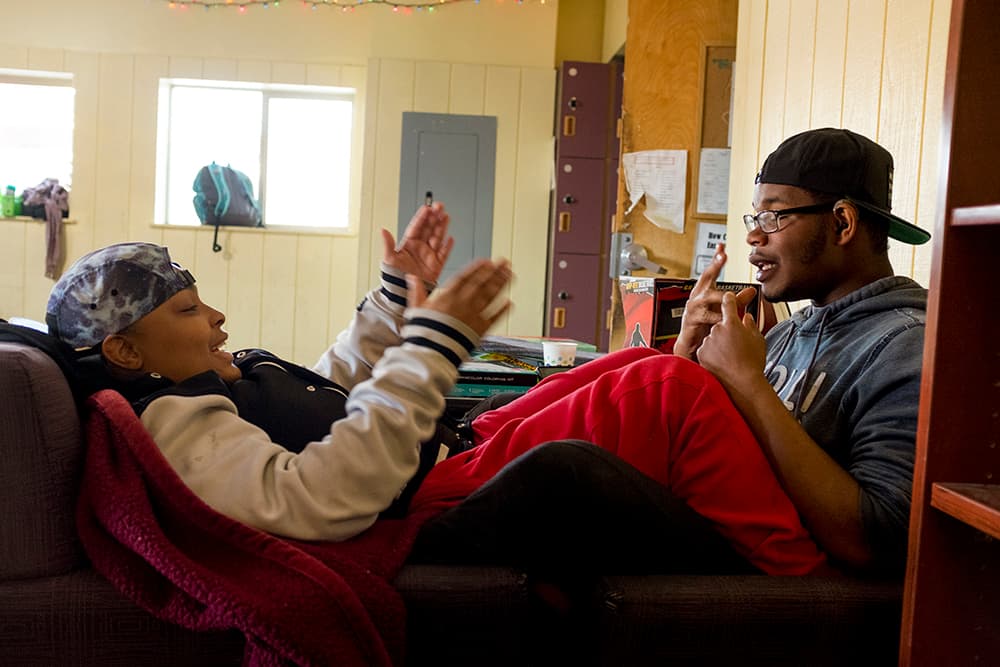
Residents at Peak don't usually go so far as to say they like it in the shelter -- some even say they hate it -- but it serves a purpose as they work toward stability. There's a general feeling that their time here is a low point, a moment to work through, not exactly something to savor. But a plate loaded with eggs and donuts can be pretty nice on a holiday morning.
As breakfast wraps up, Chris H., who's 19, yells to the eating group as someone usually does: "What do we say to our volunteers?!"
The residents reply, as always: "Thank you!"
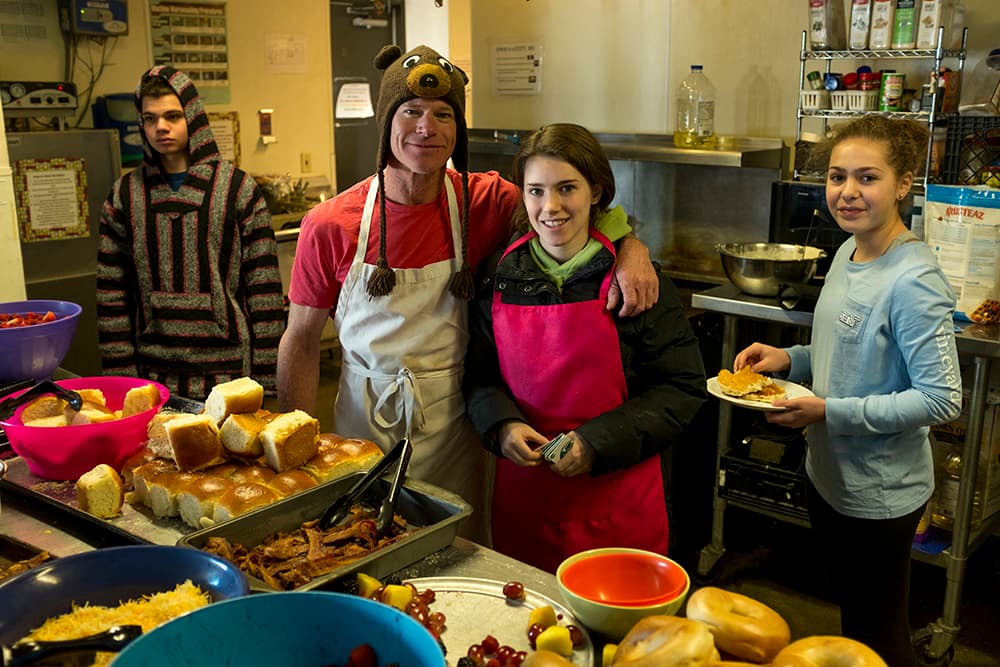
Running the show is a team of case workers who show up on the holidays as they do every day. Soon after breakfast, they begin calling residents in alphabetical order. In small groups, residents line up to pick out backpacks that they fill themselves with donated gifts: hats, scarves, underwear, socks, hygiene kits, movies, art supplies and gift cards to Starbucks, Walmart and Target.
If he wasn't facilitating the Christmas morning gift-giving, case worker Daniel Sparks says, "I'd be with my mom and my siblings right now -- and my dog."
Sparks comes from a family long-involved in youth education, and they "absolutely understand" why he chooses to work the holiday this year. Sparks sees himself as a "constant" for young people whose lives might otherwise be in turmoil.
"If you feel like you don’t have anyone, we’re here," he says. "Hopefully that means something."
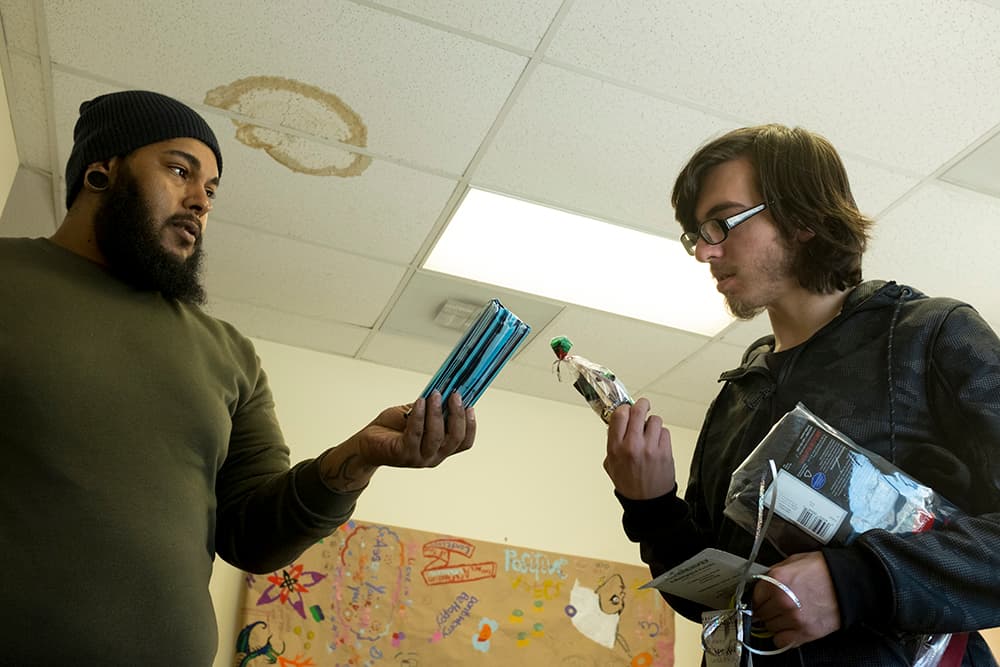
That is a feeling echoed by many of Urban Peak's staffers. They might otherwise be with their own families on Christmas morning, but nobody felt it was a tough decision to come to work.
Like much of the Urban Peak experience, that emphasis on care is two-sided. Administrators seek to offer a welcoming place that is also explicitly not meant to be an endpoint. Case managers and residents alike live with a conflicting sense of what this place is supposed to be.
"It's good to take things that are good from it and appreciate them and be grateful for what you have, while still realizing this is not a good place and not somewhere you really want to be," Ruth says as she finishes breakfast. But, she says, "No matter what, you come out with a bunch of people you’ve made an effect on -- and a lot of people have had an impact on you."
